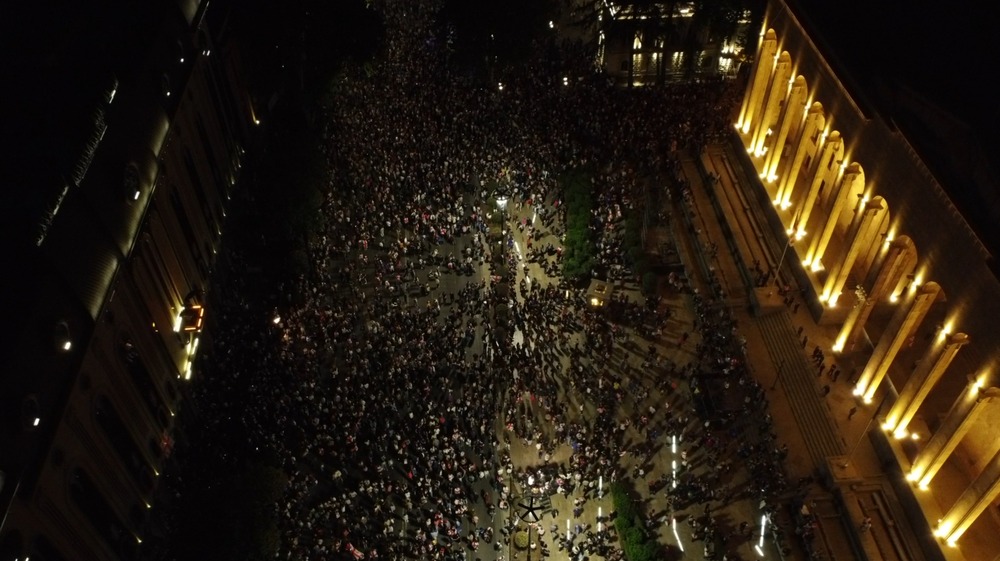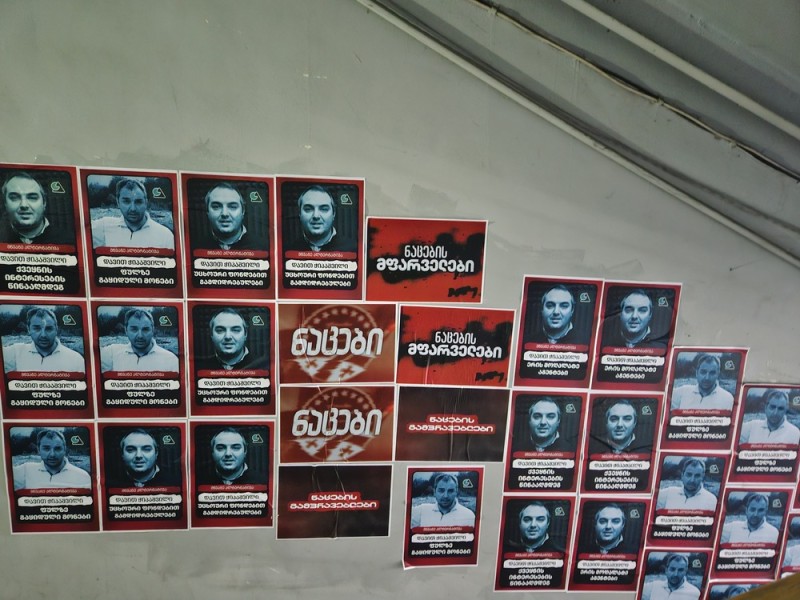As the founder of the non-governmental organization Franklin Club, which promotes liberal values through various projects, Sandro Zibzibadze is just one of the Georgian civil society activists and journalists who have suffered a barrage of threatening phone calls in the past few days amid opposition to the government’s “foreign agent law,” which has sparked mass protests in the capital Tbilisi.
The controversial Law on Transparency of Foreign Influence deeply divided the country when it passed through the first hearing in the Georgian Parliament in mid-April and through the second last week. If adopted, the bill would mandate that non-governmental organizations and independent media outlets receiving funds from abroad register as agents of foreign influence, “pursuing the interests of a foreign power” which subjects them to government scrutiny.
The April session was marked by a fistfight inside the Parliament between members of the ruling party and the opposition and protests by thousands outside the building who opposed what they referred to as the “Russian law,” linking it to Russia's notorious Foreign Agent Law, which has been used to suppress independent voices.
Now those who openly criticized the draft are receiving threatening calls and finding posters on the walls in their neighborhoods displaying their faces and reading “foreign agent” underneath.
“They called me from 13 different numbers. They call not only me but also my mother, father, uncle, cousin, and they call about me,” said Zibzibadze. The first calls came from a Ukrainian number, then from Moldovan, Azerbaijani, South African, and Georgian numbers.
“At night, several people were standing in front of my house and were probably waiting for me,” he said. Four or five of them. His brother noticed them and called him to tell him not to come home, and after he did not show up, the men wrote on his door: "The agent lives here."
“They put up posters saying "He sold his homeland for a grant" and left,” Zibzibadze told OCCRP.
To Nino Zuriashvili, Editor in Chief at Studio Monitori, an investigative outlet and OCCRP member center, the proposed law and the campaign against its opponents appear to be following a Kremlin recipe.
“This is a kind of intimidation attempt, I cannot predict how far they will go; this is a purely Russian scenario,” she said. “Posters were also put up this morning saying that “there is no place for agents in Georgia.”
The law is not even in force yet, but “they have already labeled us as agents,” Zuriashvili said, adding that one of the inscriptions the perpetrators left behind next to a poster with her face read: “Your place is not in Georgia.”
 Thousands of Georgians in front of Parliament protesting the so-called “Foreign Agent Law”. (Photo: Studio Monitori)Those targeted by this campaign believe the government dominated by the Georgian Dream is behind these threats. The party was founded by a businessman who made his fortune in Russia and is seen by the opposition as pro-Russian.
Thousands of Georgians in front of Parliament protesting the so-called “Foreign Agent Law”. (Photo: Studio Monitori)Those targeted by this campaign believe the government dominated by the Georgian Dream is behind these threats. The party was founded by a businessman who made his fortune in Russia and is seen by the opposition as pro-Russian.
The callers knew the addresses, family members, and other data not publicly available.
“In my opinion, they have such a list from the Ministry of Internal Affairs or some other state structure,” Zuriashvili said.
Nana Biganishvili, Editor at Studio Monitori, agrees. The person who called her mentioned the name of her father, and she concluded that the information about her came from some government database.
“It was a threat. My personal information was revealed to a stranger. He probably knows my address,” she said.
The intimidation started on Monday, less than a week ahead of another protest scheduled against the law. First with a lot of swearing on the phone, then threats, and then posters on the homes and neighborhoods of those who protested mid-April, labeling them foreign agents and traitors.
The Georgian Young Lawyers Association (GYLA), an NGO, condemned the campaign in a statement on Tuesday, saying that there is reason to believe that the personal data used to make the “insulting calls to activists and human rights defenders” has been obtained illegally from a state agency.
Speaker of the Georgian Parliament Shalva Papuashvili announced that the Political Council of Georgian Dream has decided to create a database containing information on all individuals “who are involved in violence, blackmail, threats and other illegal acts,” or “who publicly endorse these actions,” referring to the protesters.
“All measures will be taken within the framework of the Constitution and the law so that violations of the law, violence, and threats against these persons will not remain without a response from the state or society,” he said.
Papuashvili concluded by saying that the “Law on Transparency” will make a “significant contribution to ensuring long-term peace and tranquility in Georgia, and accordingly, the so-called depolarization, which is one of the main demands of the European Union towards Georgia.”
“This is what authoritarianism looks like. Shame on the Georgian Dream and those enabling its destruction of Georgian people’s hopes and aspirations,” Member of the European Parliament, Miriam M. Lexmann said regarding the launch of this database.
Opponents of the law have announced a massive rally on Saturday against what they called a “Russian Law” under the slogan: Yes to Europe, No to Russia.



